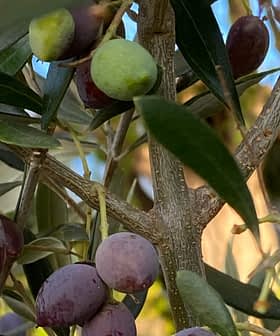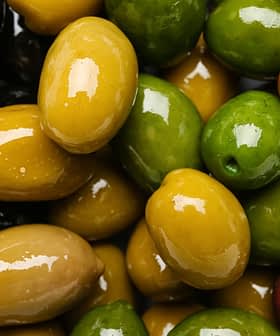Olive Oil Polyphenol Oleuropein Shows Promising Neuroprotective Effects in Cellular Model of Parkinson’s Disease
Recent study findings suggested that oleuropein possesses neuroprotective effects in an in vitro model of PD when administered preventively as a pre-treatment.
Parkinson’s disease is characterized by oxidative stress and neuronal degeneration, with research suggesting that oleuropein, a component of olive oil, may have neuroprotective effects by reducing oxidative stress and modulating the autophagy process. Studies have shown that oleuropein can reduce neuron cell death and mitochondrial superoxide production, making it a potential candidate for the development of preventive therapies in neurodegenerative diseases like Parkinson’s.
Described as the second most common neurodegenerative disorder, Parkinson’s disease (PD) has long been associated with high levels of oxidative stress. The primary characteristic of PD is a progressive loss of neurotransmitter dopamine and neuronal degeneration leading to the development of motor symptoms.
Oxidative stress results from an accumulation of reactive oxygen species (ROS) and evidence suggests that it contributes to the pathogenesis of PD by affecting the mitochondrial dysfunction, apoptosis, inflammatory response or lysosomal degradation (autophagy) pathways.
See Also:Olive Oil Health Benefits
In particular, since the autophagy-lysosomal pathway is known to be the central cellular mechanism for protein aggregate degradation and removal of damaged mitochondria, disruption of the autophagy-lysosomal pathway by ROS has been implicated in the pathogenesis of PD and of great interest as a therapeutic target.
The main challenge with the treatment of PD is due to the late clinical presentation when neuronal loss has already occurred, thus efforts are concentrated on finding strategies that protect or halt neuron loss.
Increasing evidence has shown natural polyphenols such as catechins, resveratrol and isoflavons exert neuroprotective effects by decreasing oxidative stress, inflammation and neuron death (apoptosis). In particular, oleuropein (OLE), one of the major phenolic components of olive oil, has been demonstrated to have a broad spectrum of therapeutic benefits including anti-inflammatory, anti-oxidant, anti-cancer as well as antimicrobial activities.
Of interest, OLE has been found to reduce apoptosis and ROS generation in preclinical models. Recent findings of a study published in the International Journal of Molecular Science indicated treatment of neuronal PC12 cells with OLE not only lowered oxidative stress levels and apoptosis but also modulated the autophagy process.
The researchers initially treated cells with OLE before the addition of a potent Parkinson toxin (6‑OHDA) demonstrating significant reduction in neuron cell death, and concluded that “these results endorse OLE as a pro-survival molecule playing a preventive pro-survival role in our cellular paradigm.”
Further data in support of the neuroprotective effect of OLE was obtained when the same cellular model was treated with OLE before the addition of a powerful inhibitor of the superoxide dismutase enzyme (known as DDC), resulting in a considerable reduction in mitochondrial superoxide production.
Next, the researchers assessed biomarker expression specific to the autophagy process. Their data suggested OLE plays a novel role in preventing autophagy stimulation by affecting the expression levels of proteins involved in the lysosomal pathway.
The authors cautioned that while “these results support a role for OLE as a modulator of the autophagic flux, autophagy activation is also linked to neuronal death” and therefore the exact role and use of OLE in lysosomal degradation pathway requires further research before clinical translation as a therapeutic target of the autophagy process.
The final take-home message of the study was that “these data solidify oleuropein as a candidate for the development of novel preventive therapies in neurodegenerative diseases with a facet of oxidative stress and/or impairment of autophagy, such as in Parkinson’s Disease.”









